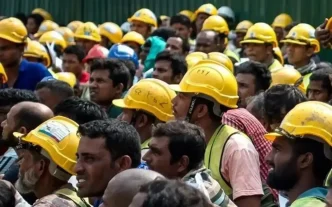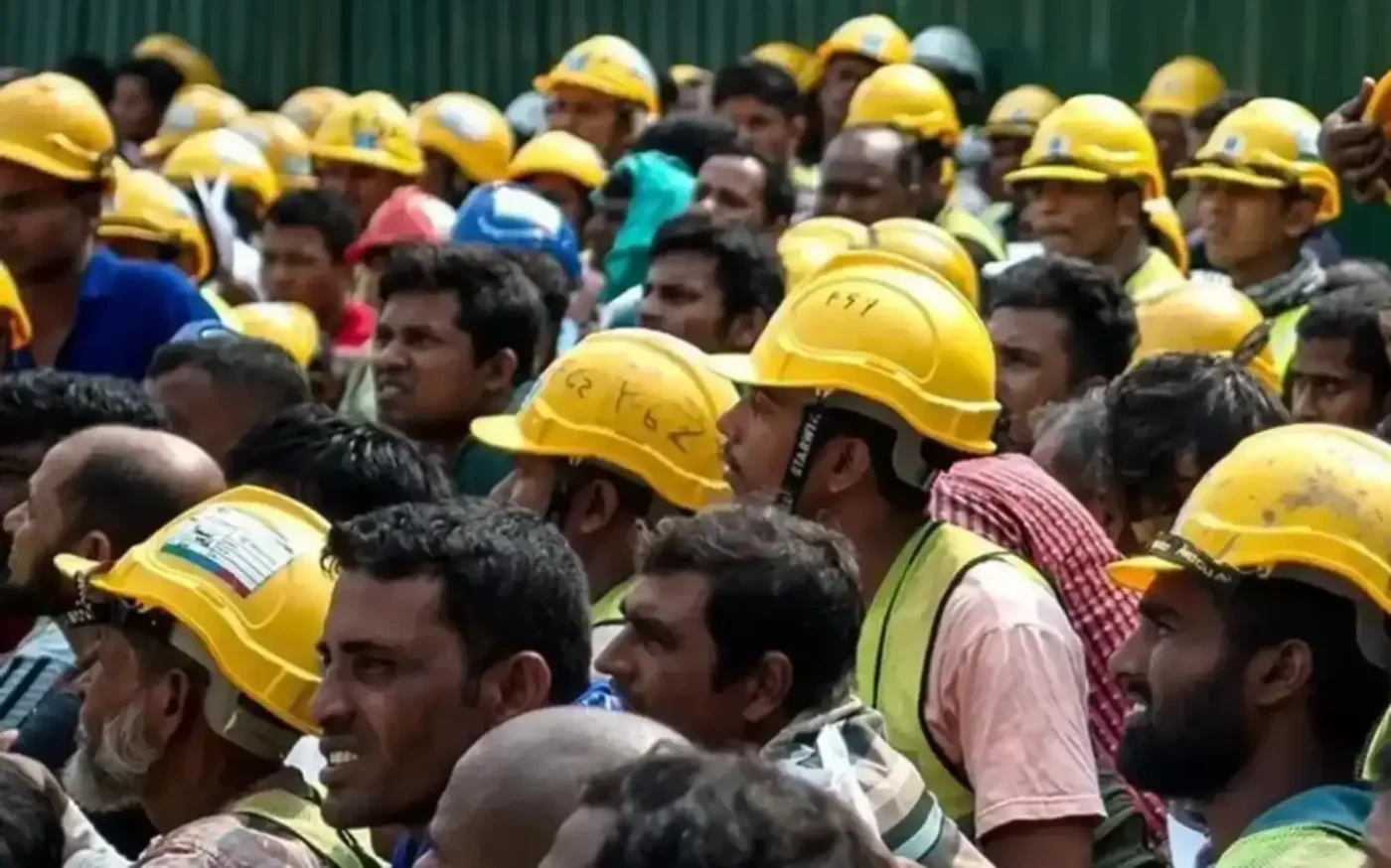In a significant step toward enhancing bilateral cooperation on labor migration, Bangladesh and Malaysia are set to convene their third Joint Working Group (JWG) meeting in Dhaka on May 22, 2025. The two-day event, hosted at the InterContinental Hotel, aims to ensure safe migration and fair employment practices for Bangladeshi workers seeking opportunities in Malaysia. With a 12-member Malaysian delegation already in the Bangladeshi capital, this meeting signals a renewed commitment to addressing the challenges and opportunities of cross-border labor mobility in Southeast Asia.
Building Bridges for Safe Migration
The JWG meeting marks a critical juncture in the ongoing dialogue between Dhaka and Kuala Lumpur on labor migration. Led by the senior secretary of Bangladesh’s Ministry of Expatriates’ Welfare and Overseas Employment, the Bangladeshi delegation will engage with their Malaysian counterparts, headed by the deputy secretary-general for policy and enforcement. Gazi Md Shahed Anwar, deputy secretary of the Employment-3 branch at the ministry, confirmed the development to local media, underscoring the meeting’s focus on creating structured pathways for safe and ethical recruitment.
Sources within the Bangladeshi ministry have indicated that a key outcome of the discussions could be a formal declaration easing the process for Bangladeshi workers to enter Malaysia’s labor market. While details remain under wraps pending the meeting’s conclusion, such a move could open significant opportunities for thousands of workers from Bangladesh, a country with a large labor surplus seeking overseas employment to bolster remittances and alleviate domestic unemployment pressures.
A Preparatory Push in Putrajaya
In the lead-up to the Dhaka meeting, a Bangladeshi delegation traveled to Putrajaya on May 14 for a preparatory joint session with Malaysia’s home and human resources ministers. Led by Asif Nazrul, an adviser to the Bangladeshi ministry, the delegation included senior officials such as Neamat Ullah Bhuiyan, senior secretary to the ministry, and Sarwoer Alam, deputy secretary. Lutfey Siddiqi, the chief adviser’s envoy on international affairs, also joined the discussions, highlighting the high-level political backing for these talks.
In a video message posted on social media following the Putrajaya session, Asif Nazrul revealed that Malaysia plans to recruit between 100,000 and 150,000 foreign workers in the near future. He expressed hope that Bangladeshi workers would be prioritized, having directly appealed to Malaysia’s Human Resources Minister Sim for preferential consideration. While Minister Sim did not commit to specific quotas, he acknowledged the request and affirmed Malaysia’s dedication to ethical employment practices. Under the Malaysia Madani framework, which emphasizes compassion, justice, and well-being, Sim reiterated that foreign workers would have access to social protection, welfare programs, and skills training.
A Growing Bangladeshi Workforce in Malaysia
Malaysia already hosts a substantial Bangladeshi workforce, with official data estimating around 900,000 Bangladeshi nationals currently employed in the country. Of these, nearly 500,000 have arrived since late 2022 through 101 recruitment agencies authorized by the Malaysian government. These workers are primarily engaged in sectors such as construction, manufacturing, and agriculture—industries that form the backbone of Malaysia’s economy but often face labor shortages due to demographic shifts and local reluctance to take up low-wage, physically demanding roles.
The presence of such a large Bangladeshi diaspora underscores the importance of formal agreements like those under discussion at the JWG. Remittances from overseas workers are a lifeline for many Bangladeshi families, contributing significantly to the national economy. In 2024 alone, remittances from Malaysia accounted for a substantial portion of Bangladesh’s foreign exchange earnings, providing a buffer against economic challenges such as inflation and trade imbalances. However, the migration process has not been without issues, with reports of exploitative recruitment practices, high fees charged by middlemen, and inadequate protections for workers’ rights prompting calls for reform on both sides.
Challenges and Opportunities in Labor Migration
The migration of Bangladeshi workers to Malaysia is emblematic of broader trends in Southeast Asia, where labor mobility serves as both an economic driver and a source of diplomatic engagement. For Bangladesh, overseas employment offers a solution to domestic underemployment, with millions of young workers entering the job market each year. Malaysia, on the other hand, benefits from a steady supply of labor to fuel its industrial and infrastructure growth, particularly as it pursues ambitious development goals under frameworks like Malaysia Madani.
Yet, the system is far from perfect. Bangladeshi workers often face significant hurdles, including exorbitant recruitment fees that can amount to thousands of dollars—sometimes exceeding 100,000 Bangladeshi Taka (US$850)—forcing many into debt before they even begin working. Once in Malaysia, some encounter wage theft, poor working conditions, or limited access to legal recourse in cases of abuse. Both governments have faced criticism for not doing enough to regulate recruitment agencies or enforce labor protections, though recent efforts suggest a growing recognition of these issues.
The JWG meeting in Dhaka offers a platform to address these systemic challenges. If successful, a new declaration could establish clearer guidelines for ethical recruitment, reduce costs for workers, and ensure better oversight of agencies. It may also pave the way for expanded quotas for Bangladeshi workers, particularly in light of Malaysia’s projected labor needs. However, any agreement must balance economic imperatives with the protection of migrant rights—a delicate task given the competing interests of governments, employers, and workers themselves.
Regional Implications and Ethical Commitments
The Bangladesh-Malaysia dialogue on labor migration holds broader implications for Southeast Asia, a region characterized by significant intra-regional labor flows. Countries like Indonesia and the Philippines also send large numbers of workers to Malaysia, often competing for the same opportunities. A preferential arrangement for Bangladeshi workers, if realized, could set a precedent for how Malaysia engages with other labor-exporting nations, potentially reshaping regional migration dynamics.
Moreover, Malaysia’s stated commitment to ethical employment under the Malaysia Madani framework aligns with international calls for fair treatment of migrant workers. The International Labour Organization (ILO) has long advocated for policies that prioritize worker welfare, including access to social security, fair wages, and safe working conditions. By emphasizing compassion and justice in its approach, Malaysia has an opportunity to position itself as a leader in ethical labor practices—a move that could enhance its global reputation while addressing domestic labor demands.
For Bangladesh, the stakes are equally high. Securing better terms for its workers in Malaysia could serve as a model for negotiations with other destination countries, from the Middle East to Europe. It could also strengthen Dhaka’s hand in domestic politics, where the government faces pressure to deliver economic opportunities for its burgeoning population. Asif Nazrul’s proactive engagement in Putrajaya, coupled with high-level representation at the JWG, signals that Dhaka is approaching these talks with both urgency and optimism.
Looking Ahead: A Path to Mutual Benefit
As the Joint Working Group meeting unfolds in Dhaka, the eyes of policymakers, workers, and advocacy groups will be on the outcomes. A declaration facilitating the migration of Bangladeshi workers to Malaysia, if finalized, could mark a turning point in bilateral relations, fostering economic ties while addressing longstanding concerns about worker exploitation. Yet, the true test will lie in implementation—whether both governments can translate commitments into actionable policies that prioritize human dignity alongside economic gain.
For the hundreds of thousands of Bangladeshi workers already in Malaysia, and the many more hoping to follow, the hope is for a future where migration is not just a necessity, but a pathway to opportunity and security. As discussions continue, the question remains: can Bangladesh and Malaysia craft a model of labor migration that serves as a beacon for the region?
















